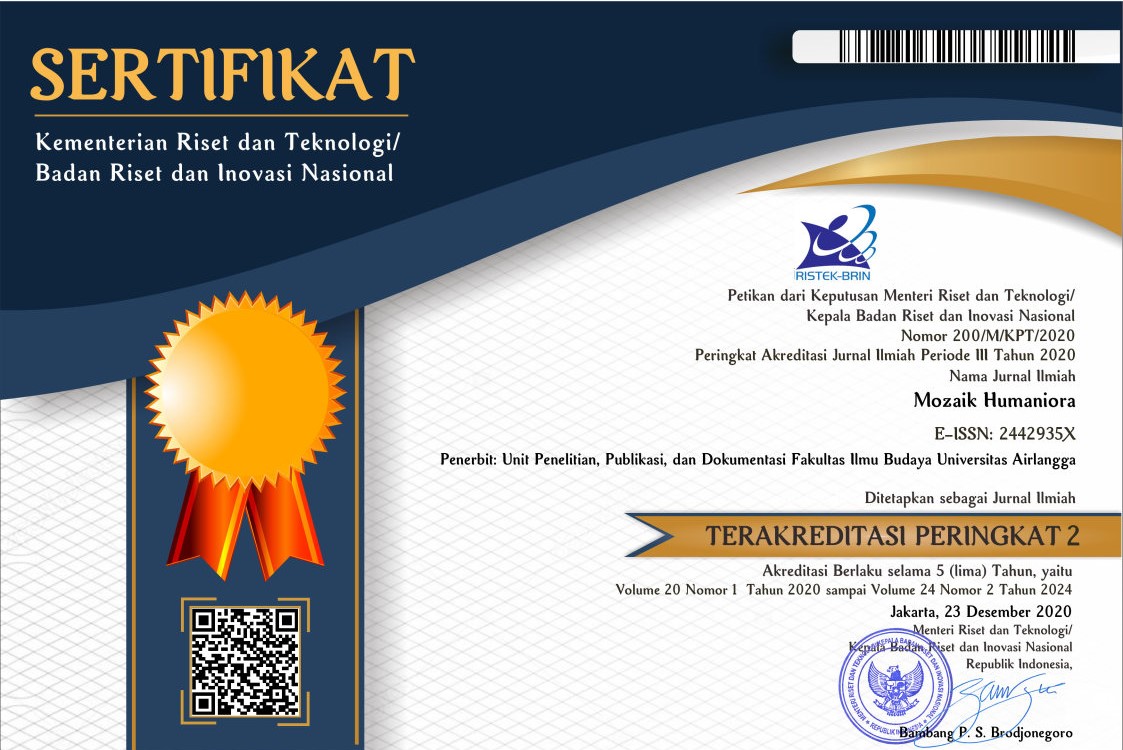The Implementation of the Empowerment Model of Women Farmer Groups "Minangkabau” in Managing Sustainable Food Security
Downloads
This research aims to explore the empowerment model of Minangkabau woman farmer groups was implemented to manage sustainable food security. "Minangkabau" farmer women groups in Koto Tuo Kenagarian were known not to be optimally empowered yet in managing food before. To pursue the purpose of this study, qualitative descriptive method was used together with system dynamics approach. The results of this research indicated that the implementation of empowerment model has successfully improved the potential and income of Minangkabau woman farmer groups. Their consumption patterns and nutritional knowledge have been increased from 62.50 percent before FGD to 74.60 percent after FGD. Moreover, their family health nutrition has been improved from 67.56 percent before FGD to 77.64 percent after FGD. Similarly, their food knowledge also has been elevated from 96.50 percent before FGD to 99.60 percent after FGD. And, 98 percent of "Minangkabau" farmer women groups even also has had more knowledge and skills related with diversify local food processing and food waste composting. In conclusion, the empowerment model for manging sustainable food security is very essential for Minangkabau woman farmer groups.
Achmad, M. Fagi. 2013. Indonesian Food Security Under Threats: Strategy and Policy for Consolidation and Development. Analisis Kebijakan Pertanian. Volume 11 No. 1, Juni 2014 : 11-25
BPS. 2015. Kecamatan Harau dalam Angka. Indonesian Statistics.
Gantini, Tuti. 2015. "Local Wisdom in the Food Security Measurement Method. West Java High School of Agriculture.” Majalah Ilmiah UNIKOM 13 (2).
Hardono, Gatoet S. 2014. "Local Food Diversification Development Strategy.” Analisis Kebijakan Pertanian 12 (1), 1-17
Ibrahim, Hasan and Rinda Yanti. 2017. Model of Empowerment of Women Farmers in the Management of Sustainable Food Independent Villages Based on Local Wisdom (1) First Year. Final Report of Applied Product Research. Payakumbuh State Agricultural Polytechnic. West Sumatra.
________. 2019. Empowerment of Women Farmers on Sustainable Food Security with Dynamics System Modelling (in Nagari Koto Tuo, Harau Sub-district, Limapuluh Kota Regency, West Sumatera). DOI: 10.1088/1755-1315/299/1/012022. URL: https://iopscience.iop.org/article/10.1088/1755-1315/299/1/012022/pdf.
Nurti, Yevita, Ermayanti, and Lucky Zamzam. 2007. "The Role of Matrilineal Minangkabau Family Against the Certainness of Elderly Women: Case Study in Kelurahan Payonibung, North Payakumbuh District.” Padang: Universitas Andalas.
Nowak, B. S. and T. Caulfield. 2008. "Women and Livelihoods in Post"Tsunami India and Aceh.” Asia Research Institute Working Paper Series 104. http: //www.gsfaceh.com/download/mesiumtsunami/datadanfakta/wps08_104.pdf. Singapore: Asia Research Institute, National University of Singapore.
Pieris, Karen Winsdel Dinly. 2015. "Food Resilience and Crisis in Malthusian Perspective, Depedency and Gender (Women in Development). Jurnal Hubungan Internasional 8 (1).
Rahmawati, Farida Nurul, Nikmah Suryandari, and Netty Dyah Kurniasari. 2013. "Communication Strategy for Madurese Women's Economic Empowerment Based on Madurese Local Wisdom.” Komunikasi 7 (1), 1-67.
Ratnawati, Susi. 2011. "Rural Poor Women's Empowerment Model Through Entrepreneurship Development.” Jurnal Kewirausahaan 5 (2).
Yanti, R. 2018. "The Sustainable of Environmental Carrying Capacity to Support on Food Security (Nagari Sulit Air, X Koto Diatas District, Solok, West Sumatra).” IOP Conf. Ser.: Earth Environ. Sci. 197 012030. http://iopscience.iop.org/issue/1755-1315/197/1
Yanti, R. and I. Hasan. 2018. "A Sociological Study of Conservation Behavior and Agroforestry in the Equatorial Semi-Arid Region (Case Study: Amarasi District, NTT).” Journal of Applied Agricultural Science and Technology 2.
Sururi, Desi L. 2016. "Analisis Program Diklat Participatory Rural Appraisal (Perencanaan Partisipatif).” Jurnal Administrasi Pendidikan 13 (1).
Susilo, Bambang. 2010. "Institutional Based Economic Empowerment of Women Farmers.” Muwazah 2 (2).
Zakiyah. 2010. "Empowerment of Women by Lajnah Wanita.” Jurnal Pengkajian Masalah Sosial Keagamaan 17 (1).

Mozaik Humaniora is licensed under a Creative Commons Attribution-ShareAlike 4.0 International License. Both authors and Mozaik Humaniora agree with the following attribution of journal:
1. Copyright of this journal is possession of Author, by the knowledge of the Editorial Board and Journal Manager, while the moral right of the publication belongs to the author.
2. The journal allows the author(s) to retain publishing rights without restrictions
3. The legal formal aspect of journal publication accessibility refers to Creative Commons Attribution Share-Alike (CC BY-SA).
4. The Creative Commons Attribution Share-Alike (CC BY-SA) license allows re-distribution and re-use of a licensed work on the conditions that the creator is appropriately credited and that any derivative work is made available under "the same, similar or a compatible license”. Other than the conditions mentioned above, the editorial board is not responsible for copyright violation.


















